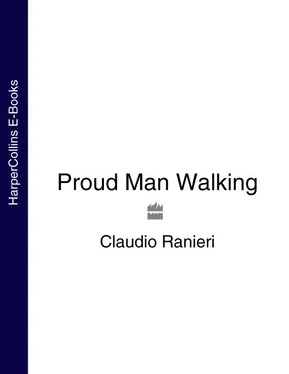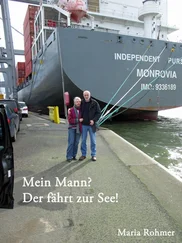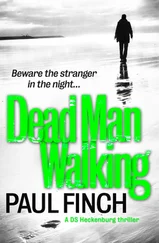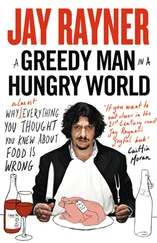My little joke, of course. These must just be coincidences.
In my mind, I was already thinking about the formation I would put out against Liverpool the following Saturday, though without realizing that in the case of Mutu, who in the line-up of my thoughts would be one of the starting eleven, it was going to be a race against the clock from that moment on. Everything was squared with the British authorities in three days, and a work permit secured. At the Italian end, things were a little more complicated on the transfer front. Problems with faxes, a public holiday in mid-August (can it really be true that we Italians are always on holiday?), red tape … anyway, it was not long before I realized I would probably not be picking Mutu to play at Anfield.
Before Liverpool though, we had to start thinking seriously about Europe, because at last, after all the transfers, the friendlies, the fine words and the expectations, this was the start of the real business.
We set off very early on the Tuesday morning. Rendezvous at Harlington 7.10 am, then on to Gatwick to take a flight for Slovakia at 11 am. Two hours’ flying time followed by a coach ride of nearly three hours, and we were at Zilina. Arriving at five in the afternoon, we were soon on the field for the customary final pre-match training session. We found the temperature quite pleasant. Hot, but not suffocating. The match was the important thing, but no less important to me was the general attitude of the squad. For the first time here, I would be sending star players to sit out the game up in the stands, and it was only right that I should make things clear. Since I had brought everyone along with me, and this was our official debut, it was the best time. And so, I gathered all the players together the evening before the match to say a few words, especially to the older campaigners, as I had already spoken plainly to the newcomers before they signed.
To build a team, matches must be lived to the full. Not only wins, but defeats too, as these help to shape the character of the squad. In the end, a team is like a family and the hard moments should serve to bring everyone together. A defeat provides an important moment in which to take stock, and a base on which to build the wins that will come later. I wanted them to reflect on this as well, before we went into the first real competitive fixture of our season.
‘Boys,’ I said, ‘one way or another, on the park or on the bench, you all knew where you were. But now you’ll have to take on board the fact that it all starts from scratch. You’ve got to get used to the idea of having another manager.
‘Imagine this is Eriksson speaking, or another international team manager. Then it won’t be too difficult for you. What would you do? Try and put yourself about a bit so as to get noticed? I don’t want you to show me anything I already know about. What you’re worth, I mean. But remember that when I put you on the bench or in the stand – and it’s something that will happen to all of you – it doesn’t mean you’re out of favour.
‘The squad has changed just as the aims of the club have changed, and rotation is going to be a fact of life. Bear in mind that if you’re here, new or old, it’s because I want you along, so we can accomplish something big. If you all understand this, it will be the first step on the road to achieving the targets we’ve set ourselves.’
I had given them straight talking and I knew they had all understood, and that they all appreciated the situation. And I knew they would all pull faces when left out. Unfortunate … but they would simply have to get used to a new reality. Football has moved into a new era, and anyone who fails to grasp the situation will not have a great future. This is the time to lay foundations for a big structure, and there can be no question of those foundations being shaky.
MSK Zilina v Chelsea, Champions League Qualifier, 1st Leg, Pod Dubnom, 13 August 2003
I decided to play 4 – 4 – 2, but in particular, to start Veron on the right. Zilina took the field adopting a cautious approach, with a lone striker up front and little appetite for attack. They were obviously wary of us even with home advantage, more so than against Maccabi, their opponents in the previous round, but hoped to repeat the upset by exploiting space on the break. As it turned out, they had one chance at the beginning, when after just three minutes Desailly was forced to make a rather scrambled clearance, but after that little or nothing else. We played the match as we should have, deservedly running out as 2 – 0 winners with a goal by Eidur Gudjhonsen and an own goal also resulting from a move of his. Getting off on the right foot is always important, and even more so for us, with all the talk that Chelsea generated during the summer. But besides the result, I was happy about the attitude of the squad and the tactical flexibility I had sensed.
The Liverpool date was already near, but the transfer window had not yet closed and I was hoping not only that the players I had asked for would materialize, but also that they would be available as soon as possible, with preparation of the squad in mind. The bigger the names, the more complicated the negotiations turn out. In discussions with the management we had agreed to look for a holding midfielder and a forward. However, they had to be players who could make a difference to our squad, and, given the top-class players we already had, the circle was now closing on possible targets. For the midfielder, I was very keen on Claude Makelele, not least in view of the fact that he was unsettled at Real Madrid; and for the forward, I liked the look of Hernan Crespo, or, alternatively, Fernando Morientes. Inter wanted to sell the Argentinian as they needed cash, but they were asking too much, whereas in the case of the Frenchman at Real the situation was more complex, diplomatically in particular. My plan, as I had explained clearly to Abramovich right from our first meeting, was to cover every position with two players, both of whom I could consider as first choices. I needed another two pieces for the jigsaw, just like these.
In the meantime, the great day had arrived. No Mutu unfortunately, since, as I had feared, the transfer documentation from the Italian Football Federation did not come through in time, and we were at the airport ready to board for Liverpool. Ready for the biggest and most exciting adventure of our career. The 2003/04 Premiership campaign was about to get underway.
Liverpool v Chelsea, Anfield, 17 August 2003
We were taking up more or less where we had left off at the end of last season. A token of continuity that produced a positive feeling inside, though needless to say, Jesper Gronkjaer had scored that famous goal at Stamford Bridge three months ago, whereas now at Liverpool we were about to embark on a new era. It was a match like any other against top-level opposition, and simplicity itself to prepare for from the psychological standpoint. It practically prepares itself. The wait is exciting for everybody. Everyone is on edge, and in fact my job sometimes is to lower the tension. The problem was, I would be missing not only Mutu, but the injured Petit as well.
So I decided – keeping faith with my nickname ‘the Tinkerman’ – that I would field a completely new lineup. Yes, even though this was such an important match, I had no doubts about my decision to pick what I saw as the side that would give us the best result. I was putting the maturity of my team to the test, straight away. On paper it was a 4 – 1 – 4 – 1. In practice, I had Geremi in front of the back four, Johnson, Terry, Desailly and Bridge, then two central playmakers in Lampard and Veron, a lone striker up front, Gudjhonsen, and two out wide ready to cut in from the wings, Duff on the right and Gronkjaer on the left. An odd sort of formation in the eyes of the press, but I saw it as giving them both the chance to get themselves into shooting positions on their preferred foot.
Читать дальше












